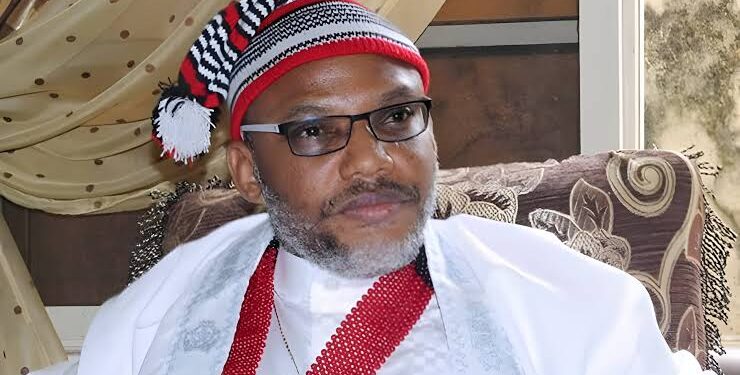The Federal High Court in Abuja has handed down a life sentence to Nnamdi Kanu, the leader of the Indigenous People of Biafra (IPOB), for terrorism. This ruling comes after a long trial that has kept the nation’s attention focused on the case, and it has sparked strong debate on whether the punishment fits the crime.
The Court’s Decision
Justice James Omotosho sentenced Kanu to life imprisonment for four of the counts in the seven-count terrorism charge. For another count, he was given 20 years, and for the final count, five years, with all sentences running concurrently. This decision effectively spared Kanu from the death penalty, which the Federal Government had initially demanded.

The court explained that while the charges were serious, the sentence of life imprisonment was deemed sufficient to address the gravity of the offenses while allowing some measure of mercy.
Government’s Reaction
Immediately after the sentencing, reactions from government circles were mixed. Some officials welcomed the judgment as a firm stand against terrorism and acts that threaten national security. Others expressed that while the life sentence is strong, it might not fully deter similar actions in the future.
The Federal Government had originally sought the death penalty, arguing that terrorism laws leave little room for leniency. The court’s decision to impose life imprisonment instead has prompted discussions about the balance between law enforcement and proportional justice.
Moving Forward
As this is a developing story, updates will continue to emerge. Kanu’s legal team may appeal the ruling, and IPOB’s response is likely to evolve.

















